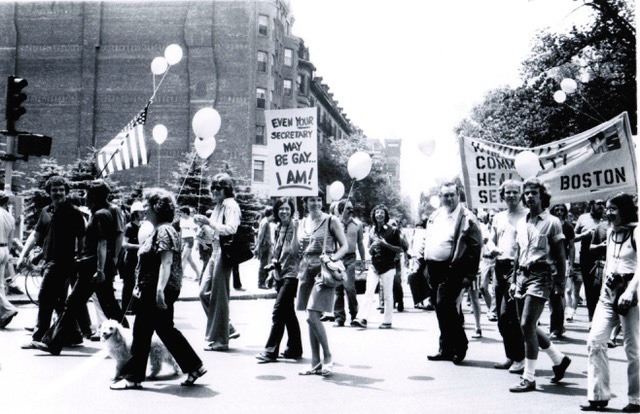Politics & Pride: A History of Massachusetts's LGBTQ+ Politicians & Campaigns

MHS Event
In Partnership with The History Project
Mark Robert Schneider
Samantha Gross, The Boston Globe
Byron Rushing
Massachusetts has a long history leading the way for LGBTQ+ rights, from Gerry Studds, the first openly gay Congressman, to the issuance of the first same-sex marriage license in the country. The panelists will consider how being gay affected politicians’ careers, how viewing gay marriage as a civil right helped build African American support that was crucial in passing this legislation, and where the fight for LGBTQ+ issues now stand with the election of Maura Healey as the first openly lesbian governor of Massachusetts. Panelists will reflect on the rights politicians were able to win for the LGBTQ+ community and the ongoing struggles being fought for today.
Hybrid Event
The in-person reception starts at 5:30 and the program will begin at 6:00.
Masks are optional for this event.
The virtual program begins at 6:00 PM and will be hosted on the video conference platform, Zoom. Registrants will receive a confirmation message with attendance information.
